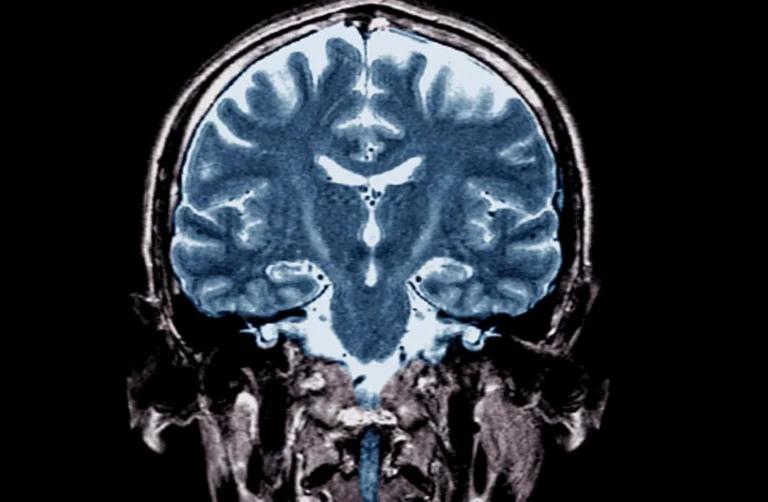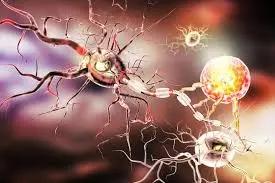Motor neurone disease (MND), also known as amyotrophic lateral sclerosis (ALS), is a rare and devastating neurological condition that affects the brain and spinal cord. This progressive disorder gradually weakens the function of the motor neurons, which are responsible for transmitting signals from the brain to the muscles. As a result, individuals living with MND experience a gradual loss of muscle strength and coordination, leading to serious physical and functional challenges.
While the specific course of the disease can vary significantly from person to person, MND is ultimately a life-limiting condition. However, the outlook and life expectancy for those diagnosed with this complex disorder is not set in stone. In this article, we will delve into MND’s progression, explore the factors that influence the disease’s progression, and provide a deeper understanding of the potential lifespan for individuals with this disease.
Understanding the progression of MND
Motor neurone disease is a progressive condition, meaning that the symptoms and impairments it causes worsen over time. The rate at which the disease progresses can vary considerably, with some individuals experiencing a relatively rapid decline, while others may live with the condition for several years or even decades.
Factors influencing the progression of MND
The progression of motor neurone disease is influenced by a number of factors, these factors can include:
- Age at onset: MND is more commonly diagnosed in individuals over the age of 60, and the disease tends to progress more rapidly in older patients
- Type of MND: There are several distinct forms of motor neurone disease, each with its characteristic patterns of symptom onset and progression. For example, the progressive bulbar palsy (PBP) type, which affects the muscles of the face, throat, and tongue, generally has a shorter life expectancy compared to other forms
- Genetic factors: While the majority of MND cases are sporadic (no family history), a small percentage (5-10%) of MND patients have a family history of the disease, known as familial or inherited MND
- Respiratory function: The gradual impairment of the respiratory muscles is a critical factor in the outlook of MND, as respiratory failure is a leading cause of mortality in this condition
- Access to supportive care: Comprehensive and multidisciplinary care, including the use of assistive devices, respiratory support, and specialised therapies, can significantly improve the quality of life and potentially extend the lifespan of individuals living with MND
Stages of MND progression
While the progression of MND is highly individualised, so symptoms of MND will vary, the disease can generally be divided into the following stages:
- Early stage: During the early stage, individuals may experience subtle changes, such as muscle weakness, muscle cramps or twitches or slurred speech. These early symptoms often develop gradually and may go unnoticed at first
- Intermediate stage: As the disease progresses, progressive muscular atrophy (muscle weakness and muscle wasting) becomes more pronounced, affecting mobility, swallowing, and speech. Respiratory function may also start to decline
- Late stage: In the late stage of MND, the individual’s physical abilities become severely compromised, leading to a complete loss of independent function. Respiratory failure and the need for mechanical ventilation become increasingly common
It is important to note that the duration and severity of each stage can vary significantly from person to person, and the shift between stages is not always clearly defined.
Life expectancy in MND
One of the biggest grave concerns for individuals diagnosed with motor neurone disease is the question of life expectancy. Unfortunately, there is no simple answer, as the outlook for MND can be highly variable.
Average life expectancy
On average, individuals diagnosed with the most common form of MND, amyotrophic lateral sclerosis (ALS), have a life expectancy of 2 to 5 years from the onset of symptoms. However, it is crucial to understand that this is a general statistic and does not accurately reflect the diverse experiences of those living with the condition.
Factors influencing life expectancy
Several factors can influence the life expectancy of individuals with motor neurone disease, including:
- Age at onset: Younger individuals diagnosed with MND tend to have a longer life expectancy compared to those diagnosed at an older age
- Type of MND: As mentioned earlier, the specific form of MND can significantly impact the prognosis, with bulbar onset MND generally having a shorter life expectancy compared to other variants
- Respiratory function: The preservation of respiratory function is a critical factor of life expectancy, as respiratory failure is a leading cause of mortality in MND
- Access to supportive care: The use of assistive devices, respiratory support, and specialised therapies, can significantly improve the quality of life and potentially extend the lifespan of individuals living with MND
Exceptional cases and longevity
While the average life expectancy for individuals with motor neurone disease is relatively short, there are exceptional cases where individuals have lived with the condition for many years or even decades. These cases are often associated with slower disease progression, effective management of symptoms, and access to cutting-edge medical interventions.
One notable example is the renowned physicist Stephen Hawking, who lived with a rare form of MND, known as amyotrophic lateral sclerosis (ALS), for over 50 years. Hawking’s case highlighted the remarkable resilience and adaptability of the human spirit in the face of such a devastating condition.
Coping with the uncertainty of MND
The unpredictable nature of motor neurone disease’s progression and the variability in life expectancy can be a significant source of anxiety and uncertainty for individuals and their loved ones. It is essential to recognise and address these emotional challenges.
Importance of open communication
Maintaining open and honest communication with healthcare providers, as well as with family and friends, can be valuable in dealing with the uncertainties of MND. Discussing outlook, treatment options, and end-of-life planning can help individuals and their caregivers feel more prepared and empowered to make informed decisions.
Focusing on quality of life
While the long-term outlook for individuals with motor neurone disease may be uncertain, it is crucial to focus on the present and prioritise the individual’s quality of life. This may involve exploring palliative care options, engaging in meaningful activities, and cherishing time with loved ones.
Seeking emotional and psychological support
The emotional and psychological toll of living with a life-limiting condition like MND can be immense. Seeking support from mental health professionals, support groups, or grief counselling can be invaluable in helping individuals and their loved ones cope with the challenges and uncertainties of the disease.
Research and treatment
Despite the challenges posed by motor neurone disease, the scientific and medical community continues to make strides in understanding the disease and exploring new avenues for treatment and care.
Research
Researchers around the world are actively investigating the underlying mechanisms of MND, exploring genetic factors, and testing novel therapeutic approaches. These efforts have led to a better understanding of the disease and have paved the way for potential breakthroughs in the future.
Treatments
While there is currently no cure for motor neurone disease, various treatments and interventions have been developed to help manage symptoms, slow the disease’s progression, and improve the quality of life for individuals living with MND. These include:
- Medications: Drugs like riluzole and edaravone have been approved to help slow the progression of the disease
- Assistive devices: Adaptive technologies, such as speech-generating devices, mobility aids, and respiratory support equipment, can significantly enhance the independence and quality of life for individuals with MND
- Multidisciplinary care: A comprehensive care team, involving neurologists, physical therapists, occupational therapists, speech-language therapists, and other healthcare professionals, can provide invaluable support and improve outcomes
- End-of-life care: As the disease progresses, palliative care and end-of-life planning become increasingly important to ensure that individuals with MND receive the comfort, dignity, and support they need
Coping strategies and support resources
Living with motor neurone disease can be an immensely challenging and overwhelming experience, not only for the individual but also for their family and caregivers. It is essential to have access to a range of coping strategies and support resources to navigate this journey.
Developing coping mechanisms
Effective coping strategies for individuals with MND may include:
- Practicing mindfulness and meditation to manage stress and anxiety
- Engaging in physical activity and exercises within the limits of their abilities
- Maintaining social connections and seeking emotional support from loved ones
- Exploring creative outlets and hobbies to find joy and purpose
Support resources for individuals and caregivers
Numerous organisations such as the Motor Neurone Disease Association and support groups offer invaluable resources for individuals living with motor neurone disease, as well as their carers and loved ones. These resources may include:
- Educational materials and information about the disease, its management, and available support services
- Peer support groups, both in-person and online, to connect with others facing similar challenges
- Respite care and caregiver support services to help reduce the burden on family members and loved ones
Conclusion
Motor neurone disease is a devastating and life-limiting condition, but it is not without hope. While the outlook and life expectancy for individuals with MND can be highly variable, progress in research, treatment, and supportive care has the potential to improve outcomes and enhance the quality of life for those living with this challenging disease.
Sources
Medical Disclaimer
NowPatient has taken all reasonable steps to ensure that all material is factually accurate, complete, and current. However, the knowledge and experience of a qualified healthcare professional should always be sought after instead of using the information on this page. Before taking any drug, you should always speak to your doctor or another qualified healthcare provider.
The information provided here about medications is subject to change and is not meant to include all uses, precautions, warnings, directions, drug interactions, allergic reactions, or negative effects. The absence of warnings or other information for a particular medication does not imply that the medication or medication combination is appropriate for all patients or for all possible purposes.









